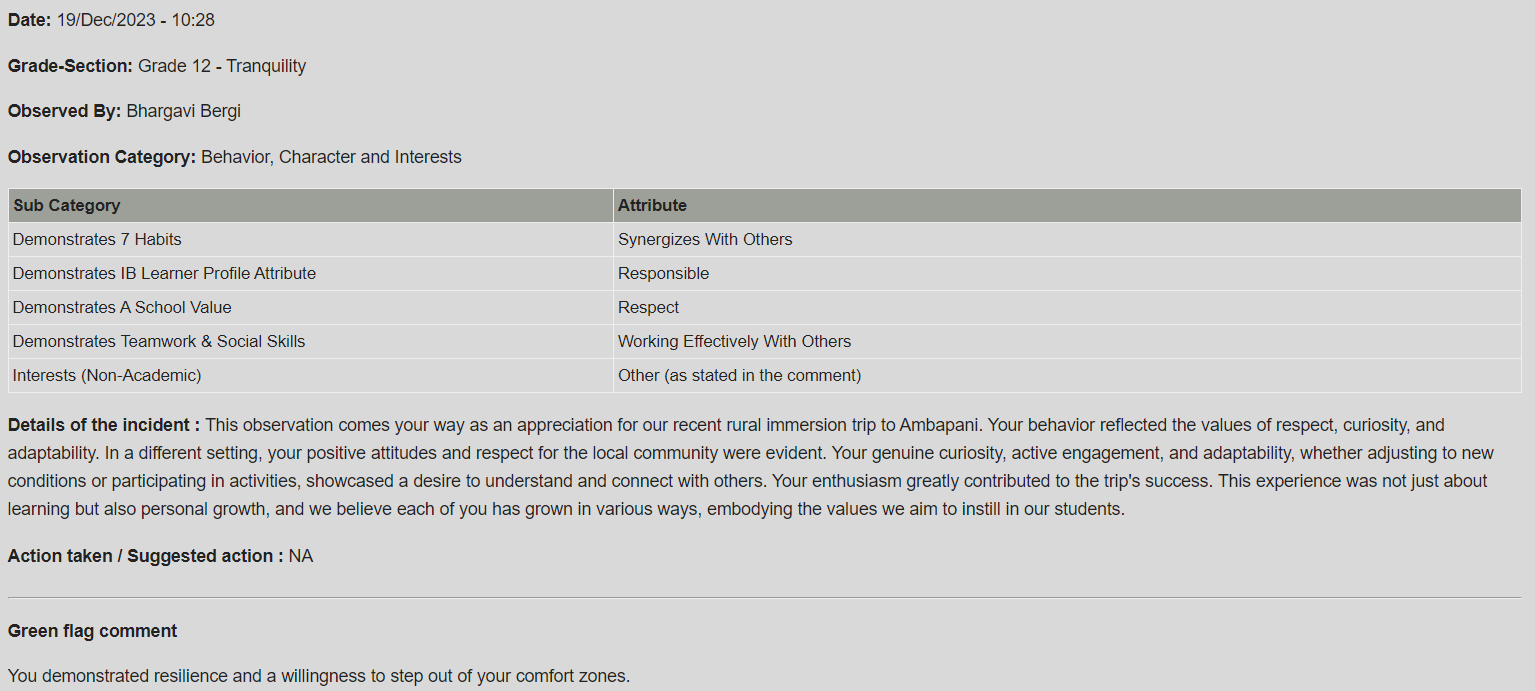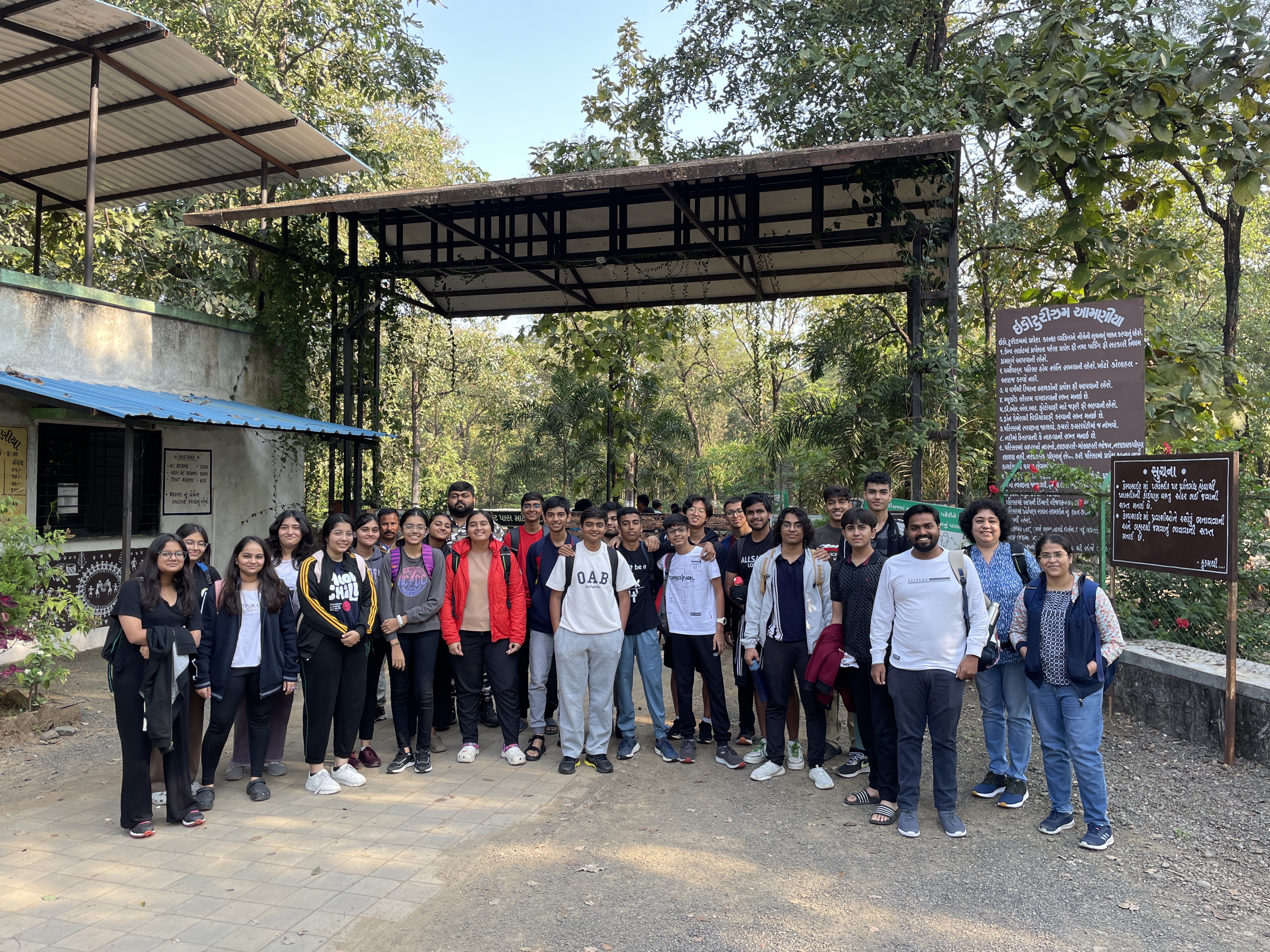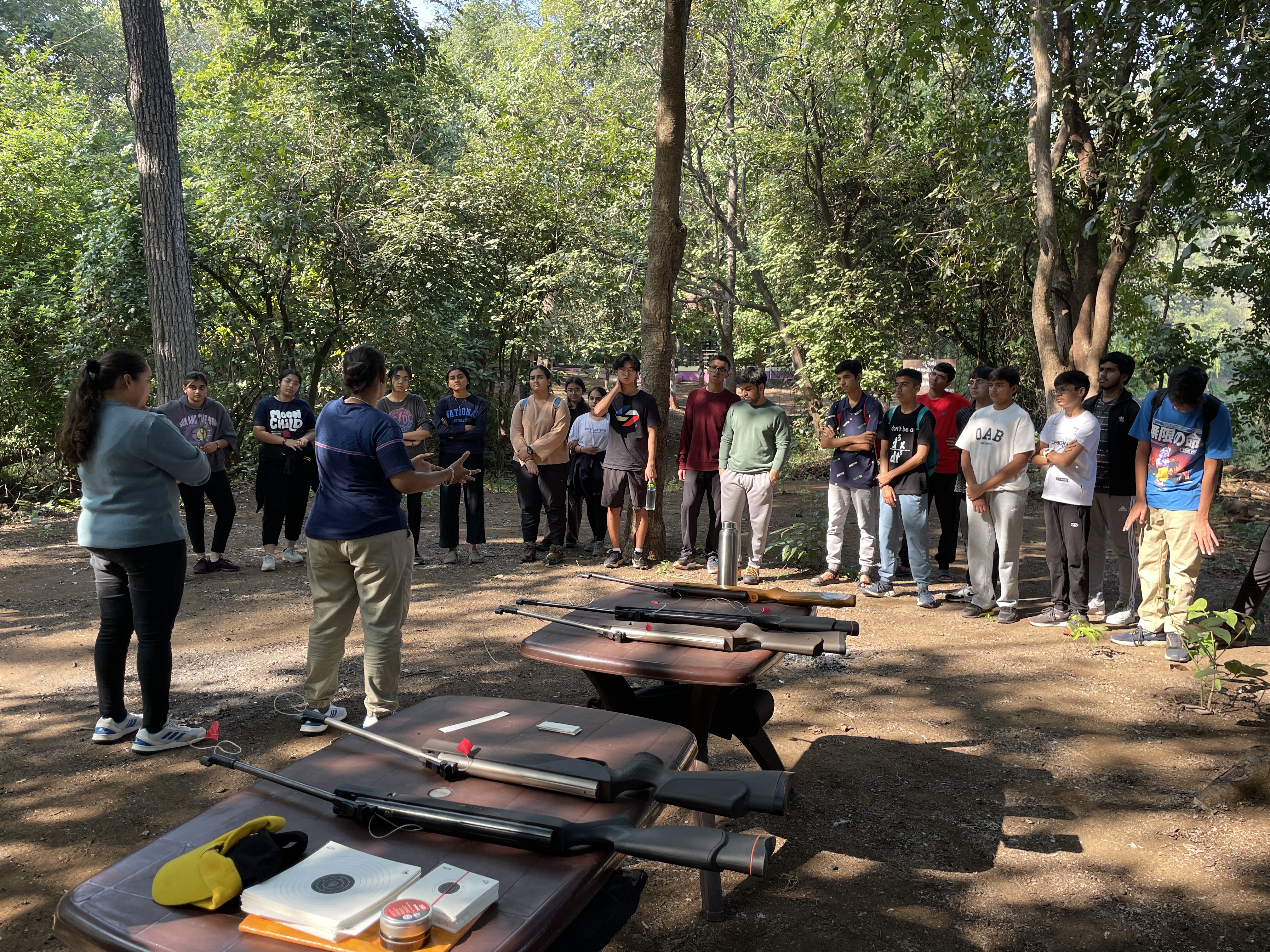Embarking on a journey to Ambapani, we, a group of students, teachers, and volunteers hailing from urban areas, aim to raise awareness among the local community about environmental sustainability. Our mission is to demonstrate that individuals from the city can actively contribute to rural areas. During this trip, we not only seek to engage in meaningful conversations about sustainability but also to actively participate in initiatives that positively impact the rural environment. Simultaneously, our focus extends to understanding and embracing the unique cultural identity of Ambapani’s residents, fostering a two-way cultural exchange. Immersed in the rural landscape, we aspire to connect with nature, gaining firsthand insights into the challenges faced by the community and developing a profound appreciation for the natural resources that shape their way of life.
LO1 – Identify own strengths and develop areas for growth
My strengths that were helpful in the experience were observation skills and creativity we were part of having treks on multiple days. During the trek, we needed sharp observation and silence to explore the species.
LO2 – Demonstrate that challenges have been undertaken, developing new skills.
The decision to embark on a journey itself suggests a willingness to take on challenges. Traveling to a rural area implies stepping out of one’s comfort zone, exposing individuals to new environments and potential difficulties. Addressing environmental sustainability is a complex challenge that requires understanding and tackling various issues. I likely encountered obstacles related to communication, education, and the implementation of sustainable practices in a rural setting.
LO4 – Show perseverance and commitment in CAS experience.
The decision to embark on a journey itself requires commitment.Addressing environmental issues often involves long-term efforts. Demonstrating perseverance in this context means staying committed to the cause over time, even in the face of challenges or slow progress.Actively contributing to rural areas implies ongoing engagement. Commitment is demonstrated by not only participating in initiatives during the trip but also by considering the long-term impact and sustainability of the efforts made.Cultural exchange is a continuous process that requires ongoing effort. Showing perseverance in this context involves being open to learning, adapting, and actively participating in cultural activities with a long-term perspective.
LO5 – Demonstrate skills and benefits of working collaboratively.
Students, teachers, and volunteers coming together for a common cause suggests a collaborative effort, involving individuals with diverse skills, backgrounds, and perspectives.Addressing environmental sustainability and engaging with a local community often requires a multidisciplinary approach. Collaboration allowed our group to leverage the skills and expertise of each member to effectively raise awareness on the chosen issues
LO6 – Engagement with issues of global significance.
The group’s focus on raising awareness about environmental sustainability indicates an engagement with a global issue. Environmental concerns, such as climate change and resource depletion, have global implications, and addressing them at the local level contributes to the broader effort. The initiative to demonstrate that we as students and teachers from urban areas can actively contribute to rural areas suggests an awareness of the urban-rural divide, which is a global issue. Bridging this gap can lead to more inclusive and sustainable development practices.
LO7 – Recognise and consider the ethics of choices and actions.
The aspiration to connect with nature and gain firsthand insights into the challenges faced by the community reflects an ethical consideration for the environment. This involves understanding the ethical implications of human interactions with nature and the responsibility to contribute to the well-being of the local ecosystem. The emphasis on developing a profound appreciation for natural resources suggests an ethical consideration for the responsible use of resources. This includes recognizing the ethical dimensions of resource management and the impact of human activities on the sustainability of natural ecosystems.


